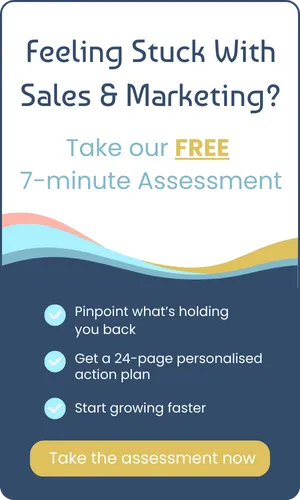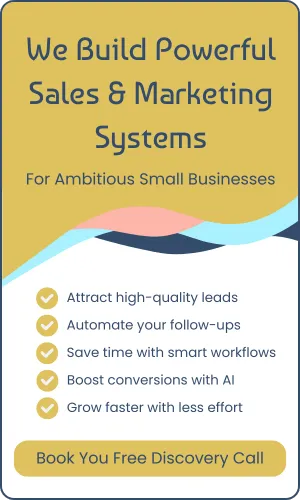Website vs. Sales Funnel: Understanding the Fundamental Differences and Choosing the Right Online Business Strategy
In the ever-evolving landscape of online business, understanding the fundamental differences between a website and a sales funnel is crucial for success.
While both play a role in attracting and converting customers, they operate in distinct ways to achieve those goals.
A website functions as a digital home for your business, serving as a hub for information, showcasing products or services, and providing a platform for customers to engage with your brand. On the other hand, a sales funnel is a strategic process designed to guide potential customers through a series of steps, from awareness to conversion.
So, which online business strategy is right for you? It depends on your goals and your target audience. Are you looking to create brand awareness and provide a broad range of information? A website may be the way to go. If your goal is to maximise conversions and drive sales, a sales funnel may be more effective.
There’s a place for both in most mature businesses where websites and sales funnels work side by side to help the business grow its brand awareness whilst also capturing, nurturing and converting leads into sales.
In this article, we will dive deeper into the fundamental differences between a website and a sales funnel, and help you make an informed decision about which online business strategy suits your needs.
The Purpose of a Website
A website serves as the digital face of your business, providing a centralised platform for customers to learn about your brand and offerings.
Here are the key purposes a website serves:
1. Information Hub: A website acts as an information hub, providing visitors with details about your products or services, company background, contact information, and any other relevant information they may need.
2. Showcasing Products or Services: Websites allow you to showcase your products or services in an organised and visually appealing manner. You can feature high-quality images, detailed descriptions, and even customer testimonials to entice potential customers.
3. Brand Building: Your website is an opportunity to establish and strengthen your brand identity. Through consistent branding elements such as logos, colour schemes, and messaging, you can create a cohesive brand experience that resonates with your target audience.
The Purpose of a Sales Funnel
Unlike a website, a sales funnel is a strategic process designed to guide potential customers through a series of steps, ultimately leading to a conversion.
Here's how a sales funnel operates:
1. Awareness: The first stage of a sales funnel is to create awareness about your product or service. This can be done through various marketing channels such as social media advertising, content marketing, or search engine optimisation.
2. Interest: Once potential customers are aware of your offering, the goal is to pique their interest and engage them further. This can be achieved through lead magnets, such as free e-books or webinars, that provide valuable information in exchange for their contact details.
3. Desire: After capturing leads, the next step is to nurture them and build desire for your product or service. This can be done through targeted email marketing campaigns, personalised content, and testimonials that highlight the benefits and value of your offering.
4. Action: The final stage of a sales funnel is to convert leads into paying customers. This is accomplished through persuasive sales pages, limited-time offers, and effective call-to-action buttons that encourage potential customers to make a purchase.
Benefits of a Website
Websites offer several advantages for online businesses. Here are some key benefits of having a website:
1. 24/7 Accessibility: A rather obvious one! However, it does warrant some consideration. Unlike physical stores, websites are accessible to potential customers at any time, from anywhere in the world, allowing them to browse and make purchases at their convenience. Ensure you have considered the “always on” nature of a website and integrate features such as Live Chat during your opening hours, and WebChat for when you are closed. A.I. ChatBots that you can educate on your products and services is also an incredibly powerful feature.
2. Credibility and Trust: A well-designed and professional-looking website instills a sense of credibility and trust in potential customers. It gives them confidence that your business is legitimate and reliable.
3. Brand Visibility: A website increases your brand's visibility by making it searchable and discoverable on search engines. This can lead to organic traffic and exposure to a wider audience.
4. Customer Engagement: Websites provide a platform for customers to engage with your brand through features such as contact forms, live chats, and comment sections. This allows for direct communication and feedback.
Benefits of a Sales Funnel
While websites are valuable, sales funnels offer unique benefits that can significantly impact your conversion rates and sales. Here are some key benefits of using a sales funnel:
1. Focused Conversion Strategy: Sales funnels are designed with the sole purpose of converting potential customers into paying customers. By guiding them through a step-by-step process, you can increase the likelihood of conversions.
2. Higher Conversion Rates: Due to their structured approach, sales funnels have the potential to achieve higher conversion rates compared to websites. The strategic sequence of steps helps eliminate distractions and keeps potential customers focused on making a purchase.
3. Personalisation and Segmentation: Sales funnels allow for personalised communication and targeted marketing messages based on the specific actions and interests of potential customers. This increases the relevance and effectiveness of your marketing efforts.
4. Optimisation Opportunities: Sales funnels provide valuable insights into customer behaviour and conversion metrics. This data allows you to identify bottlenecks, optimise your funnel, and improve overall performance.
Considerations When Choosing Between a Website and a Sales Funnel
When deciding between a website and a sales funnel, there are several important factors to consider. These include:
1. Business Goals: Understand your business goals and objectives. Are you primarily focused on building brand awareness, or are you looking to maximise conversions and drive sales?
2. Target Audience: Consider the preferences and behaviours of your target audience. Are they more likely to engage with a website or respond to a sales funnel approach?
3. Budget and Resources: Assess your budget and available resources. Building and maintaining a website requires ongoing investments, while sales funnels may require additional tools and software. We recommend you choose a single platform that offers both website and sales funnel functions.
4. Timeframe and Scalability: Determine your desired timeframe for achieving results and consider the scalability of your chosen strategy. Sales funnels can be quickly implemented and scaled, while websites require more time to establish a strong online presence.
How to Choose the Right Strategy for Your Goals
Choosing the right strategy involves careful evaluation and consideration of your goals, target audience, and available resources.
Here's a step-by-step approach to help you make an informed decision:
1. Define Your Goals: Clearly define your goals and objectives. Are you primarily focused on brand awareness, if so the website / webpage is the right option for you. However, if your goal is lead generation, qualifying prospects and driving sales a funnel is the correct choice.
2. Evaluate Your Resources: Assess your budget, available resources, and technical expertise. Determine whether you have the necessary resources to build and maintain a website or add new pages to your existing website, or implement a sales funnel.
3. Consider Your Timeline: Determine your desired timeframe for achieving results. If you need quick results and scalability, a sales funnel may be more suitable. If you have a longer-term perspective and are willing to invest in building a strong online presence, a website is probably the way to go.
4. Seek Expert Advice: If you're unsure about which strategy to choose you can always reach out to the team at Samai. We’ve been building businesses online since 2009 and can help provide a tailored recommendation based on your specific business needs.
Implementing and Optimising Your Chosen Strategy
Once you have chosen between a website and a sales funnel, it's time to implement and optimise your chosen strategy. Here are some key considerations:
1. Website Optimisation: If you decide to go with a website, focus on optimising it for search engines (SEO), user experience (UX), and mobile responsiveness. Regularly update your content, use relevant keywords, and ensure fast loading times.
2. Sales Funnel Automation: If you opt for a sales funnel, leverage automation tools and software to streamline the process. We recommend that you choose a single platform that encompasses email marketing; landing page builder; and customer relationship management (CRM) functionality to automate and track your funnel's performance.
3. Testing and Iteration: Continuously test and iterate your chosen strategy. Monitor key metrics, such as conversion rates, bounce rates, and customer feedback, to identify areas for improvement. Make data-driven decisions and refine your approach accordingly.
4. Multichannel Integration: Consider integrating your chosen strategy with other digital marketing channels. For example, you can drive traffic to your sales funnel through social media advertising or promote your website through content marketing.
So, to wrap things up…
Understanding the fundamental differences between a website and a sales funnel is essential for choosing the right online business strategy. While websites serve as digital homes for businesses, sales funnels are strategic processes designed to guide potential customers through a series of steps towards conversion.
Consider your business goals, target audience, resources, and desired timeframe when deciding between a website and a sales funnel. Implement and optimise your chosen strategy by focusing on website or funnel optimisation, automation, testing, and multichannel integration.
By making an informed decision and effectively implementing your chosen strategy, you can maximise your online presence, attract and convert customers, and ultimately achieve your business goals.
If you're curious about whether a website or sales funnel is the correct strategy for you, it might be worth reaching out to us and booking time for a chat and demo.





